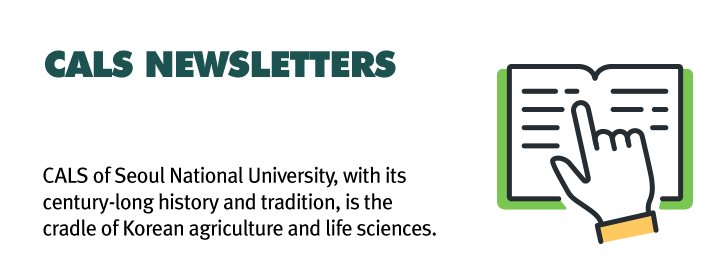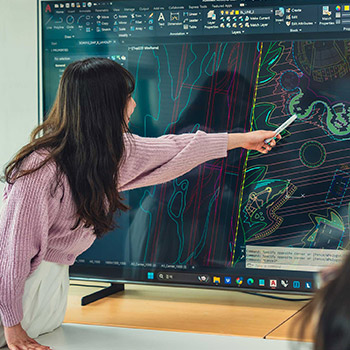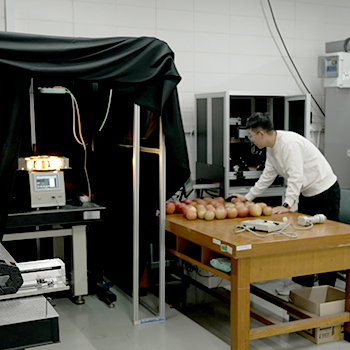Department of Agricultural Economics and Rural Development
The Department of Agricultural Economics and Rural Development focuses on research and teaching in the areas of agriculture, rural communities, natural resources, environment, and regional development. The Department of Agricultural Economics and Rural Development was established in 1997 through the consolidation of the Department of Agricultural Economics and the Department of Rural Adult Education. Due to the liberalization of international agricultural trade and the outset of local self-governing, a new approach has become necessary with regard to the study of Agricultural Economics and Rural Development in Korea. This integration has opened a new horizon and added new variety in interdisciplinary research and teaching, which are both necessary for the investigation of modern socioeconomic problems dealing with areas such as food, natural resources, environment, and balanced regional development.
This department serves as two major fields of study for both undergraduate and graduate students: agricultural economics and regional information. Undergraduate students are required to take Principles of Economics, Introduction to Agricultural Economics and Regional Development, and Economical Mathematics as prerequisites.
After their freshman year, depending on their major, students can take courses either in agricultural economics or regional information. Before taking core courses in agricultural economics, undergraduate students in this major are required to take Microeconomics, Macroeconomics, Agricultural Economics, and Quantitative Analysis in Agricultural Economics. Students majoring in regional information are required to take Microeconomics, Macroeconomics, Agricultural Information Systems, Regional Development, and Fundamentals of Spatial Economics. Undergraduate students in either of these fields will receive a bachelor’s degree in Economics (majoring in agricultural economics or in regional information). The department offers programs in agricultural economics and regional information for graduate students.
This department serves as two major fields of study for both undergraduate and graduate students: agricultural economics and regional information. Undergraduate students are required to take Principles of Economics, Introduction to Agricultural Economics and Regional Development, and Economical Mathematics as prerequisites.
After their freshman year, depending on their major, students can take courses either in agricultural economics or regional information. Before taking core courses in agricultural economics, undergraduate students in this major are required to take Microeconomics, Macroeconomics, Agricultural Economics, and Quantitative Analysis in Agricultural Economics. Students majoring in regional information are required to take Microeconomics, Macroeconomics, Agricultural Information Systems, Regional Development, and Fundamentals of Spatial Economics. Undergraduate students in either of these fields will receive a bachelor’s degree in Economics (majoring in agricultural economics or in regional information). The department offers programs in agricultural economics and regional information for graduate students.

Programs
Program in Regional Information Studies
The regional information studies program specializes in spatial development, economics, land and housing economics, sustainable planning, information management and marketing in the agriculture/food business. research and education in spatial economics, regional and development finance, spatial development and planning, urban and rural information, spatial analysis, Management Information Systems (MIS) of agricultural and food industries, e-Business, Information management and marketing in the food business. Students in the regional information program can study understand, analyze, and propose theories for urban and regional structures in terms of the regional and spatial economy and information systems. Students also learn to use diverse statistical and econometric tools such as Geographic Information Systems (GIS) and Management Information Systems (MIS) for analyzing regional/agricultural information and food business.
The regional information studies program is an integrated academic area in relation to geography, business administration, sociology, urban engineering, and others on the basis of economics. Undergraduate students have opportunities to receive financial support and to pursue research internship programs according to their academic interests. Graduate students are able to work in a government agency, in public institute of central government and local autonomous entities, or in public enterprise, in relation to housing, land, and agriculture. They can also work as researchers at national or local governmental research institutes, for example, the Korea Research Institute for Human Settlements (KRIHS), Seoul Development Institute (SDI), and so on. Recently, there has been an increase in the number of students to study abroad for regional planning, spatial economics, policy science, business management, etc. Moreover, the regional information program aims to develop spatial economic analysts for international organizations through dominant academic and research courses in the regional information program and in the Brain Korea 21 (BK21) project.
The regional information studies program is an integrated academic area in relation to geography, business administration, sociology, urban engineering, and others on the basis of economics. Undergraduate students have opportunities to receive financial support and to pursue research internship programs according to their academic interests. Graduate students are able to work in a government agency, in public institute of central government and local autonomous entities, or in public enterprise, in relation to housing, land, and agriculture. They can also work as researchers at national or local governmental research institutes, for example, the Korea Research Institute for Human Settlements (KRIHS), Seoul Development Institute (SDI), and so on. Recently, there has been an increase in the number of students to study abroad for regional planning, spatial economics, policy science, business management, etc. Moreover, the regional information program aims to develop spatial economic analysts for international organizations through dominant academic and research courses in the regional information program and in the Brain Korea 21 (BK21) project.

Faculty
| Name | Major | TEL | |
|---|---|---|---|
| Professor Kim, Euijune |
Urban and Regional Economics | +82-2-880-4742 | euijune@snu.ac.kr |
| Professor Moon, Junghoon |
Information Management in Agriculture and Food Business | +82-2-880-4722 | moonj@snu.ac.kr |
| Professor Lee, Seongwoo |
Regional Development & Planning | +82-2-880-4744 | seonglee@snu.ac.kr |
| Professor Hong Sok(Brian) Kim |
Sustainable Development & Applied Economics | +82-2-880-4717 | briankim66@snu.ac.kr |
| Assistant Professor Choi, Jong Woo |
Digital Agriculture and Technology Management | +82-2-880-4743 | youchoi817@snu.ac.kr |
| Assistant Professor Sim, Jeongeun |
Agrifood Supply Chain and Management Science | +82-2-880-4730 | jeongeun@snu.ac.kr |











